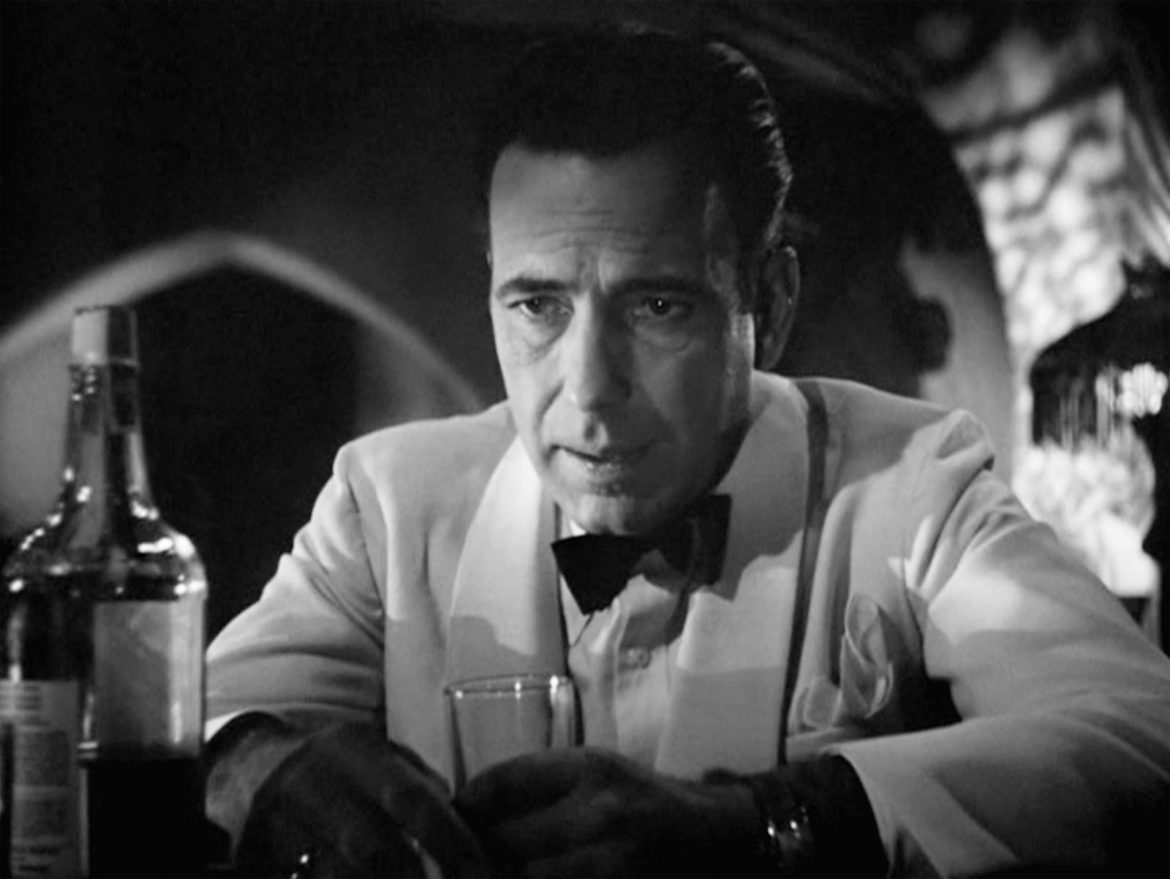That’s the advice of Dr. Joseph Harper in a wonderful new Washington Post piece, urging men to get help for their mental health problems.
Harper writes of a tragic and familiar phenomenon: “too many men ignore their depression, phobias, or other mental health issues.”
What’s the root cause?
Fear. Embarrassment. Guys want to be Clint Eastwood or Rick from Casablanca. They don’t walk into a therapist’s office right? That’s not in a Fistful of Dollars.
Or maybe smoke and disintegrate like Rick.
I understand. Cynicism is romantic, in its own way. Wasting away in regret.
Disappearing into a room, shutting everyone out, and looking over the bridge in your mind, with a Scotch by your side.
It’s manly, right? Well, men do it. But it’s certainly not strong.
“I have watched mothers and wives literally drag the men they love into my office. I often struggle with some male patients to pull information about their emotional issues out of them because they are so reluctant to speak. Others simply downplay their problems saying things like, “It’s not really a big deal,” or “My wife is blowing this out of proportion.” Then there are the men who are simply embarrassed and ask, “Nobody will ever know I was here, right?”
Too many men think they are supposed to be strong or macho all the time — even when in pain. For many, it would be unimaginable, intolerable for anyone to know they were battling anxiety, depression, or were bogged down by their emotions.”
The most troubling statistic is that while men might think they’re mentally stronger, the suicide rate for men is much higher than women. Particularly, middle-aged men.
So either we’re a lot more anxious than women, or we’re just not getting the help women are.
Maybe that makes us strong? We need help, but we don’t get it. How’s that strong?
I’ve known so many men who flirt with acknowledging mental health problems, but quickly backtrack as if it suddenly registers in their heads that they might be labeled “scared” or “less than a man.”
It’s the playground, all over again.
I don’t like the phrase “toxic masculinity,” but this is one toxic form of masculinity that lives in many of us. And I’m including myself.
I still don’t like telling people I’m anxious. I’d much prefer “depressed.”
Anxiety implies fear, running away, and boys are taught on the playground that running away is cowardly. That never leaves us, even as men.
But running away from our problems is the cowardly thing.
And guys, we’re not kidding anyone when we fake strength.
If you think you’re hiding your mental health struggles, your family and friends already know. It always comes out.
The Wall Street Journal wrote a few years ago that anxiety often looks different in men from women — it looks like anger, physical tension, substance abuse. Of course it can take other forms — panic attacks, phobias, the whole thing.
But your spouse and close friends already know. You already know. It’s time to let someone who can help know.
Thankfully, more men are starting to share their battles with anxiety.
Here’s a link to some: Stephen Colbert (crippling at times), Big Sean, Ryan Reynolds, Carson Daly, Michael Phelps.
One song that’s meant a lot to me is The National’s “I’m afraid of everyone.” The song isn’t about social anxiety, but instead, dread — the dreadful and alluring desire to flee. Which almost always stems from overwhelming anxiety.
Now Christian men are particularly worried about sharing our anxiety, because we think it might reveal ourselves as faithless, and then (gasp), what will become of our reputation as Christian men?
But that reveals just one thing — We’ve made an idol of a façade. Exactly what Jesus warned about.
We need to grow up. We need to grow up and abandon our fantasy that we’re super-men or super-Christians, impervious to medical conditions.
Jesus himself broke down from mental agony. And he did so, in front of his friends, in Gethsemane.
He didn’t try to hide his distress from them. In fact, he asked if they could stay with him during it. When you think about it, that’s just unbelievable humility. Unbelievable strength.
So please, don’t do what I did for so long, and what I still struggle with — hiding. That’s what we’re doing. Hiding. Running away and hiding.
And that’s supposed to be strong?
Here’s a link to a therapist, or psychiatrist, or support center near you. It’s uncomfortable, but anything worth anything always is.

